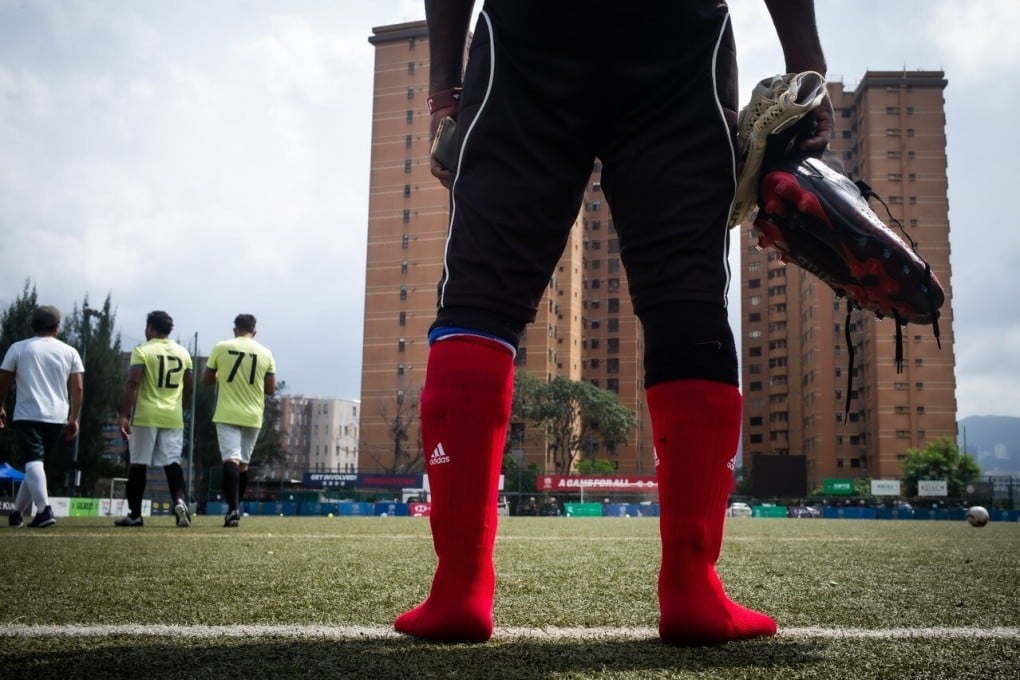Charity football tournament helps refugees and asylum seekers in Hong Kong feel more at home than away
- Branches of Hope, a local charity, helps refugees and asylum seekers in Hong Kong adapt to new lives through “Home and Away” tournament
- Tournament looks to use sport to help bridge the gap for those who have had to feel their homeland

Hong Kong’s football community came out for the annual Home and Away charity football tournament at King’s Park on Thursday.
The yearly event helps to raise funds for Branches of Hope, a local charity serving refugees, asylum seekers and human trafficking victims in the city.
He added that the universal language of sport is a great place to start, however he would like to see the government be more welcoming to them.

“The policies in Hong Kong basically make them more marginalised and deprive them of their rights,” said Yee. “So through our programmes we hope to give them access to more opportunities. I think the idea with this is to showcase the talents of refugees and asylum seekers – and football is one of those ways. Sport is such a common language and it can cross barriers and helps people interact with each other.”